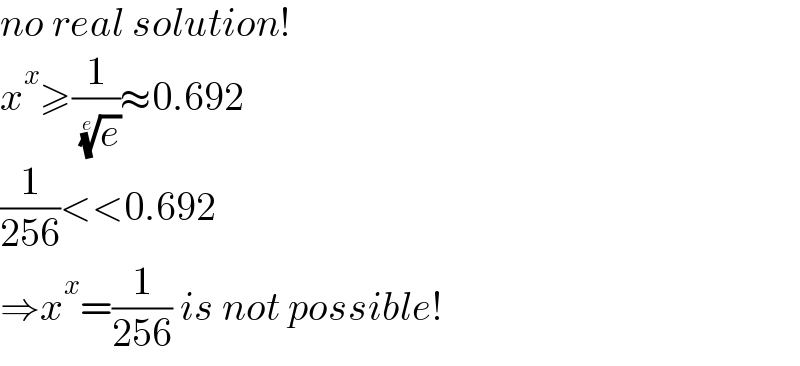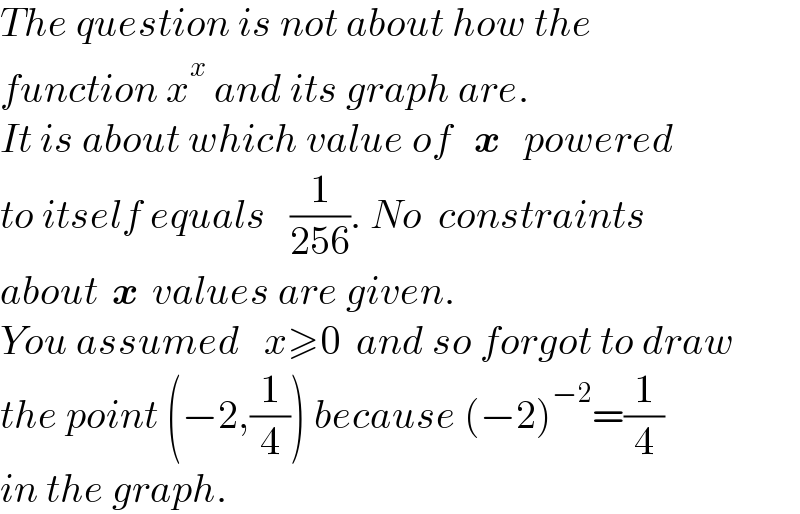
Question and Answers Forum
Question Number 133180 by mathlove last updated on 19/Feb/21

Commented by mr W last updated on 19/Feb/21

Commented by mr W last updated on 20/Feb/21

Commented by Tawa11 last updated on 23/Jul/21

Answered by JDamian last updated on 19/Feb/21

Commented by liberty last updated on 20/Feb/21

Commented by mr W last updated on 20/Feb/21

Commented by liberty last updated on 20/Feb/21

Commented by JDamian last updated on 20/Feb/21

